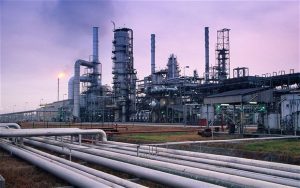 Angola has surpassed Nigeria to become the leading African crude oil producer in the month of April 2023, as reported by the Organisation of Petroleum Exporting Countries (OPEC) in its April 2023 monthly oil market report.
Angola has surpassed Nigeria to become the leading African crude oil producer in the month of April 2023, as reported by the Organisation of Petroleum Exporting Countries (OPEC) in its April 2023 monthly oil market report.
According to the report, Angola recorded a daily crude production of 1.06 million barrels in April 2023, outpacing Nigeria’s production of 999,000 barrels per day during the same period. Similarly, Algeria also recorded a production rate of 999,000 barrels per day, resulting in Nigeria’s lowest production rate in 2023.
The OPEC report revealed that the total crude oil production for the OPEC-13 countries averaged 28.60 million barrels per day in April 2023, experiencing a decrease of 191 thousand barrels per day compared to the previous month. Notably, crude oil output saw an increase in Saudi Arabia, Angola, and Iran, while production in Iraq and Nigeria declined.
Highlighting the global oil demand outlook for 2023, OPEC emphasized its dependence on rising global tensions. The report projected the total world oil demand to reach 101.9 million barrels per day in 2023. However, it acknowledged the uncertainties surrounding this forecast, including global economic developments and ongoing geopolitical tensions.
KPMG Nigeria, a tax advisory firm, recently urged the Nigerian government to explore avenues to boost its oil revenues. Nevertheless, Nigeria’s loss of the top African oil producer status to Angola in April 2023 raises concerns about the performance of the oil sector in the second quarter of the year.
In 2022, while many oil and gas companies and crude producing countries benefitted from higher oil prices due to the Russia-Ukraine war, Nigeria was unable to capitalize on the price rally due to rampant crude oil theft. The Nigerian National Petroleum Company Limited estimates that the country lost up to 700,000 barrels per day in 2022.
The OPEC report also highlighted the challenges faced by Nigeria’s economy in gaining momentum during the first quarter of 2023. Subdued business activity, limited consumer spending, high input-cost inflation, and lower employment levels compared to 2022 have contributed to the sluggishness.
As Nigeria aims to strengthen its position in the oil market and overcome these obstacles, attention turns to the strategies and policies that will shape the country’s oil sector in the coming months.

INEC Rejects Petition To Recall Senator Natasha Akpoti-Uduaghan
President Tinubu Set To Depart For Two-Week Working Visit To Paris
Tinubu Reconstitutes NNPC Board, Appoints New Leadership
DSS Arrests Two Key Suspects In Edo Traveller Killings